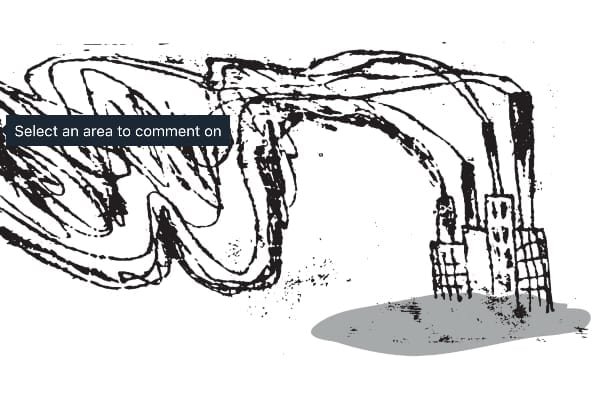This article first appeared in our I.T. special issue of of My Green Pod Magazine, distributed with The Guardian on 16 September 2020. Click here to subscribe to our digital edition and get each issue delivered straight to your inbox
H.M. Government plans for the UK to be net zero by 2050.
National emissions will be reduced as far as possible, and the rest balanced by schemes to offset an equivalent amount of greenhouse gases (GHGs).
Tree planting will play a part; the process of converting light energy into chemical energy via photosynthesis absorbs CO2 and emits oxygen.
However, this natural capacity is limited by one key factor: land mass.
As our climate crisis deepens, tree- planting strategies will only take us so far before we reach our coastlines.
Cleaning UK air
If the GHG emissions created by any country exceed the capacity of a forest equal to its land mass, then that nation must look to other sources in order to sequester pollution.
As an example, the UK’s land mass is 60 million acres. Last year, the UK created over 450 million tCO2e GHG emissions. To remove this level of pollution via photosynthesis would require over 580 million acres of forest. That’s a land mass nearly 10 times the size of the UK and over 70 times larger than our current available woodland.
It’s reasonable to say that, mathematically, the UK is currently relying on the rest of the world’s forests to clean its air.
Consequently, we need to examine all realms to find new ways to reduce emissions. One of the possibilities is sustainable I.T. in business.
Business emissions
UK GHG contributions differ from global statistics based on our specific geographic and socio-economic profile. Transport is the largest contributor at 26%, caused by 808bn annual passenger miles. It’s followed by energy supply (25%), business (17%), agriculture (10%) and waste management (4%).
By nature of requiring goods to be transported, employees to commute and operations to be powered, UK business contributes significantly to the top three GHG emission sources.
 Play Video about This Rock Might Just Save The World
Play Video about This Rock Might Just Save The World Play Video about Play 2 hours of rock
Play Video about Play 2 hours of rock Play Video about Play 2 hours of brook
Play Video about Play 2 hours of brook Play Video about Play 2 hours of sheep
Play Video about Play 2 hours of sheep











































